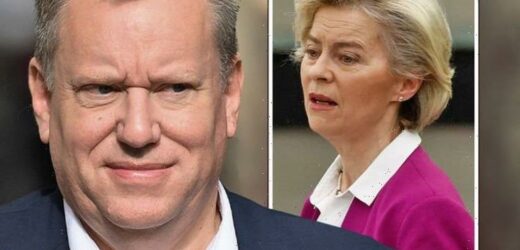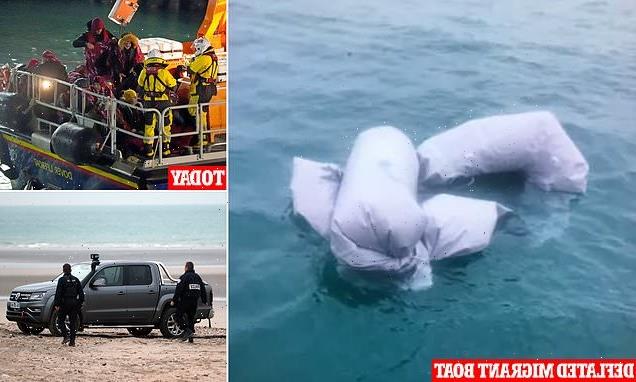Lord Frost gives update on UK’s participation in Horizon Europe
We use your sign-up to provide content in ways you’ve consented to and to improve our understanding of you. This may include adverts from us and 3rd parties based on our understanding. You can unsubscribe at any time. More info
Britain was excluded from the £80billion Horizon Europe project amid tension over the Northern Ireland protocol issue and post-Brexit disputes over fishing licenses. While Britain has been told it can re-join if those disputes are settled, modern history professor Jan Palmowski argues the prolonged back-and-forth is weakening the EU’s stance globally. Prof Palmowski, of University of Warwick, wrote: “Disrupting this seamless collaboration with partners in the UK and Switzerland—which is also excluded from associate-member status due to problems with wider negotiations with the EU—will undermine the global competitiveness of European science in the EU and beyond.“
While some experts fear exclusion from the project could be harmful for British science, Prof Palmowski believes the UK may have the upper hand in this situation.
He wrote: “Europe’s research and innovation sector has been vocal in calling on the EU to fulfil its treaty obligations and activate UK association.
“But in doing so, is it complicit in allowing the UK to cherry-pick, opting for collaboration when it suits and non-compliance at other times?”
Lord Frost lashed out at the EU earlier this month for ignoring the Trade and Cooperation Agreement (TCA), an aspect of the Brexit deal he claimed has not been violated by Britain.
But the UK remains banned from Horizon Europe – despite this being a feature of the TCA.


He told the House of Lords: “We agreed we would participate in this in the TCA.
“The TCA is clear, the UK shall participate and the relevant protocol shall be adopted, that is an obligation.
“If it became clear that the EU will not deliver that obligation – and it has not done so far – we will regard them as in breach of Article 710 of the TCA.”
And with the UK still currently banned, it means the UK may use the £6.9billion of funds allocated for Horizon Europe for their own alternative plan.
Chancellor Rishi Sunak confirmed the nearly £7billion fund allocated for the UK’s Horizon Europe membership could be spent on domestic research in a four-year commitment.

The initial plans was to contribute £2.1billion annually to the programme so British scientists and researchers could have access to an array of European science projects.
The UK has expressed a strong interest in being included in the project, and Mr Palmowski has suggested that the EU could benefit from UK involvement too.
He wrote: “Both sides have an interest in UK association to Horizon Europe. Past funding from research and innovation programmes, including from the European Research Council, underpins the research that led to the breakthrough BioNTech and Oxford vaccines that have helped both sides of the Channel return to some semblance of normality.
“Funding from European Framework Programmes has been instrumental in addressing global crises, from the Covid pandemic to the Ebola virus. “
But with Article 16 on the cards, there are fears that Britain may never be allowed to re-join the project.
DON’T MISS Archaeology breakthrough: 13-year-old makes 1300BC hoard discovery [REVEAL] Maya breakthrough with incredible underwater find [INSIHGT] La Palma volcano warning: ‘Unstoppable’ lava clocked at record speeds [REPORT]


While Article 16 could be triggered by either side, Lord Frost has said this is “very much on the table”.
And Vice European Commissioner Maros Sefcovic warned triggering Article 16 could have “serious consequences”.
James Wilsdon, from the Universty of Sheffield, told Express.co.uk: “If Article 16 is invoked, I would think that it would take our association with the project off the table entirely.
“In terms of where the science piece of this sits, clearly the Commission has been very explicit that they don’t see a resolution to the trade association agreement without a resolution of those bigger questions.”
Source: Read Full Article


